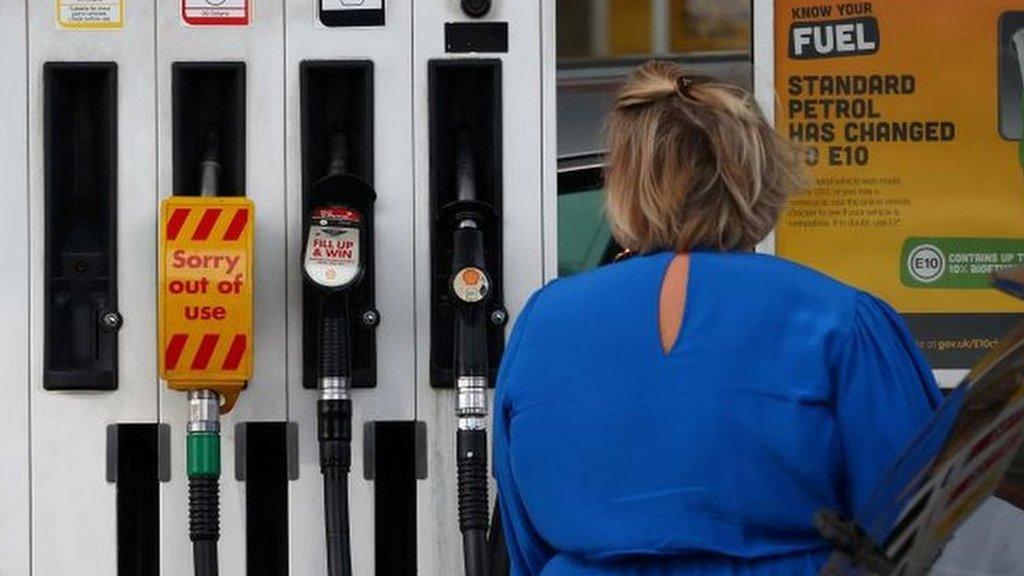Petrol supply: Reserve fuel tankers on the road to help boost deliveries
- Published
Business Secretary Kwasi Kwarteng says the "situation is stabilising"
The government has started deploying its reserve tanker fleet, driven by civilians, to boost fuel deliveries.
It comes as the fuel industry said the situation at the pumps "has begun to improve" and that it is working with the government to maintain regular deliveries.
Business Secretary Kwasi Kwarteng said soldiers would be delivering fuel later this week, after days of queues.
He said things had been difficult but denied there was a fuel supply crisis.
Ministers have decided to deploy troops to drive tankers in "the next couple of days", he said, in addition to the civilians driving them from Wednesday.
Some 150 military drivers are ready to drive the fuel tankers, with another 150 Army personnel ready to support them.
Fuel suppliers and retailers, including Shell UK, BP and Esso, said in a statement issued by the Department for Business, Energy and Industrial Strategy: "We remain confident that the situation will stabilise further in the coming days and encourage everyone to fill up as they normally would to help forecourts return to normal."
The industry statement also said there had "always been plenty of fuel at our refineries and terminals" and welcomed the deployment of the reserve tanker fleet.
The Petrol Retailers Association (PRA) said there were "encouraging signs" the pressure was starting to ease at the pumps, with forecourts taking further fuel deliveries.
The PRA, which represents nearly 5,500 of the UK's 8,000 stations, said 27% of sites had run out of fuel on Wednesday - compared with two-thirds being without on Sunday.
Brian Madderson, PRA chairman, told BBC News that while there were "less queues [and] panic buying" there was still "unusually heavy demand". He said "one or two" petrol station groups were reporting fewer dry sites than on Tuesday.
It would take more than "a day or a few days" to fully replenish stocks at all UK forecourts, he said, but there was still "plenty to go round".
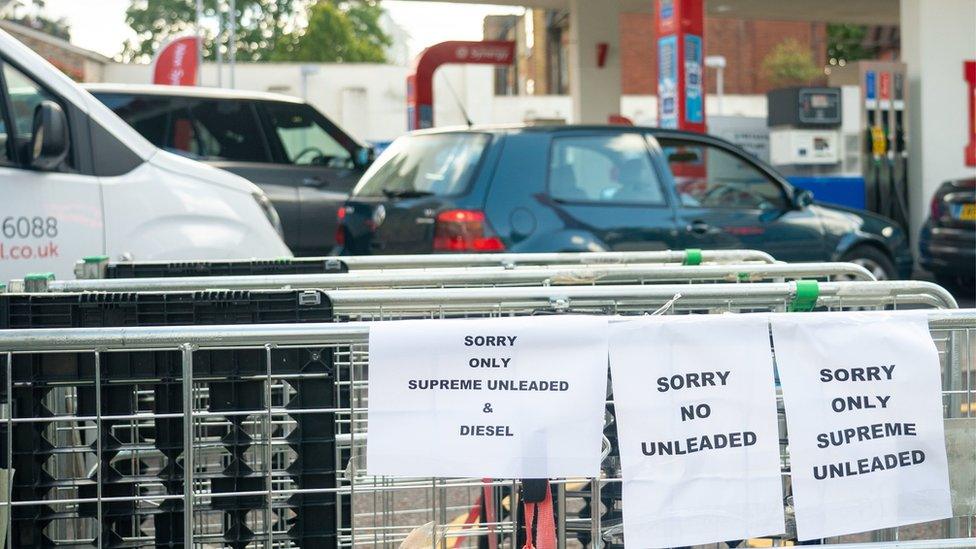
This petrol station in West London ran out of some types of fuel on Wednesday
On Tuesday, speaking for the first time since issues began, Prime Minister Boris Johnson also sought to reassure drivers about supplies, saying that people should be "confident" to go about their business.
He said he was not seeking to prioritise essential workers at pumps because things were "stabilising".
Sir Keir Starmer used his first in-person conference speech as Labour leader on Wednesday to criticise the government's handling of fuel supply issues.
Referring to the government's flagship "levelling up" policy to lower regional inequalities, he said: "Level up, you can't even fill up."
He accused the government of ignoring the issues, blaming others and delivering "half-baked" solutions with "no plan in place". Mr Starmer urged the PM to "either get a grip or get out of the way and let us step up to clear up this mess".

'Element of sheer panic'
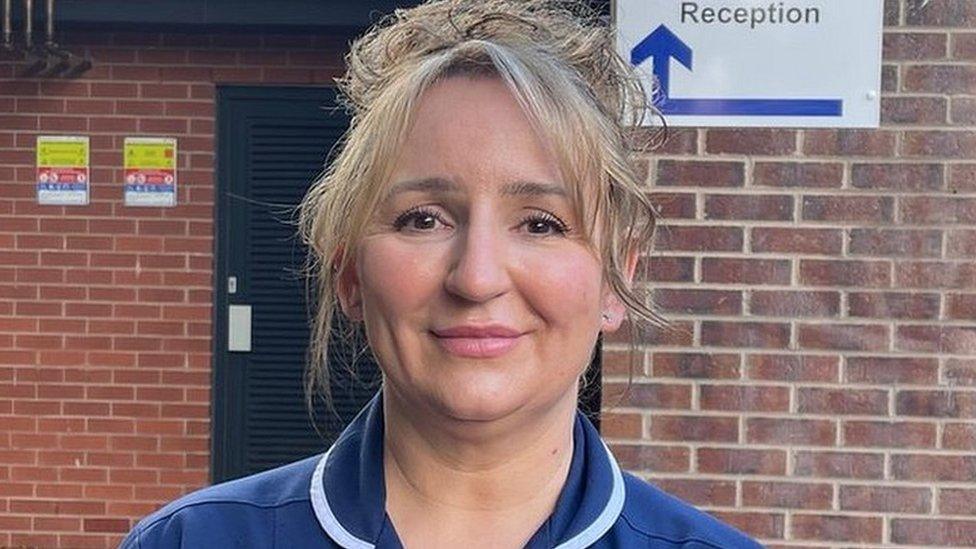
One hospice in Oldham has put out an appeal for petrol, saying its staff were struggling to fill up their vehicles.
Nurse Lindsey Harper, lead nurse for community service at Dr Kershaw's Hospice, said there was "an element of sheer panic" over the situation. The hospice gives end-of-life care to 11 patients in their own homes and staff vehicles need constant refills of unleaded petrol.
It wants filling stations to give its staff priority access and is also asking the public for donations.
Ms Harper said: "We need to prioritise those patients; we need to get to those patients as soon as we can.
"We can't be thinking about where we need to stop off for fuel."
There have also been concerns voiced by other care organisations that vulnerable service users could be left without their usual help if the crisis does not ease.
Emma Voglemann who lives in south Cambridgeshire said that, without the 24-hour help from her team of five carers, her "situation is life-threatening".
Care assistant Jenny Irons, who works in Clacton, Essex, with end-of-life patients, said it was frustrating to see people top up their cars, then get out four or five jerry cans to fill up those too.

James Spencer, managing director at fuel supplier Portland Fuel, said the UK was over the worst of the situation and sending in the Army would "generate more panic".
"Under normal circumstances supply can easily meet demand," he told BBC Radio 4's Today programme. He added that now many people had filled up their tanks, there might be a "dip in demand".
Fuel supplies are plentiful at refineries but a shortage of tanker drivers caused problems with deliveries to a small number of filling stations last week.
Reports of pumps running dry at some garages then subsequently led to a surge in demand.
Sainsbury's, which has 315 filling stations, said it was still "experiencing high demand for fuel" and that "all our sites continue to receive fuel".
Simon Williams, fuel spokesman for roadside assistance firm RAC, said its latest data on breakdowns "points to an improving picture with fewer drivers running out of fuel at the roadside".
He added: "After huge increases in these breakdowns between Saturday and Monday, yesterday we saw a 40% drop in 'out of fuels' compared to the day before."
This is still higher than normal but is a "positive sign", he said.
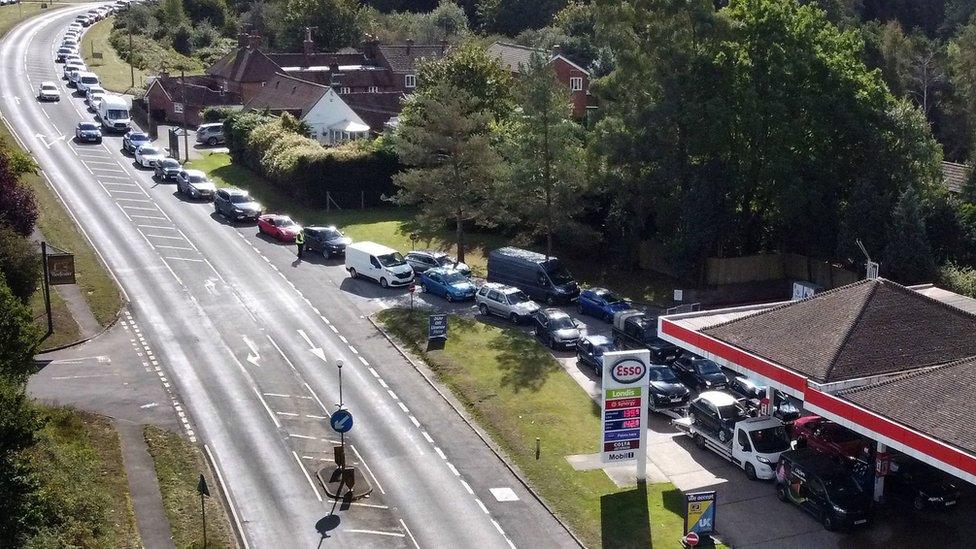
Motorists queuing for fuel at a petrol station in Ashford, Kent
But Steve McNamara, general secretary of the Licensed Taxi Driver Association, said that the situation was "not getting better", with 25% to 30% of his members unable to work on Tuesday because they could not get fuel.
He called for an essential users list to be brought in to "take the sting out of this crisis".
Meanwhile, car use in Britain this week fell to its lowest level for a working Monday since 12 July, suggesting some drivers have reduced the amount they are driving due to fuel supply issues.
The figures from the Department for Transport showed car traffic was at 91% of pre-pandemic levels on Monday, compared with 97% a week earlier.

More on the lorry driver shortage

The UK is estimated to be short of about 100,000 lorry drivers - causing problems for a range of industries, including food suppliers and supermarkets, in recent months.
The government is taking action to ensure there were enough deliveries in all industries during the run-up to Christmas, the prime minister said.
There were scenes of unrest at one petrol station in London (without sound)

How have you been affected by the fuel crisis? Share your experiences by emailing haveyoursay@bbc.co.uk, external.
Please include a contact number if you are willing to speak to a BBC journalist. You can also get in touch in the following ways:
WhatsApp: +44 7756 165803
Tweet: @BBC_HaveYourSay, external
Please read our terms & conditions and privacy policy
If you are reading this page and can't see the form you will need to visit the mobile version of the BBC website to submit your question or comment or you can email us at HaveYourSay@bbc.co.uk, external. Please include your name, age and location with any submission.

A MUSIC FESTIVAL FOR THE PLANET: The world's biggest stars unite
FROM EVERYDAY TREATS TO INDULGENT DESSERTS: GBBO winner Nadiya Hussain shares some of her favourite recipes

- Published29 September 2021
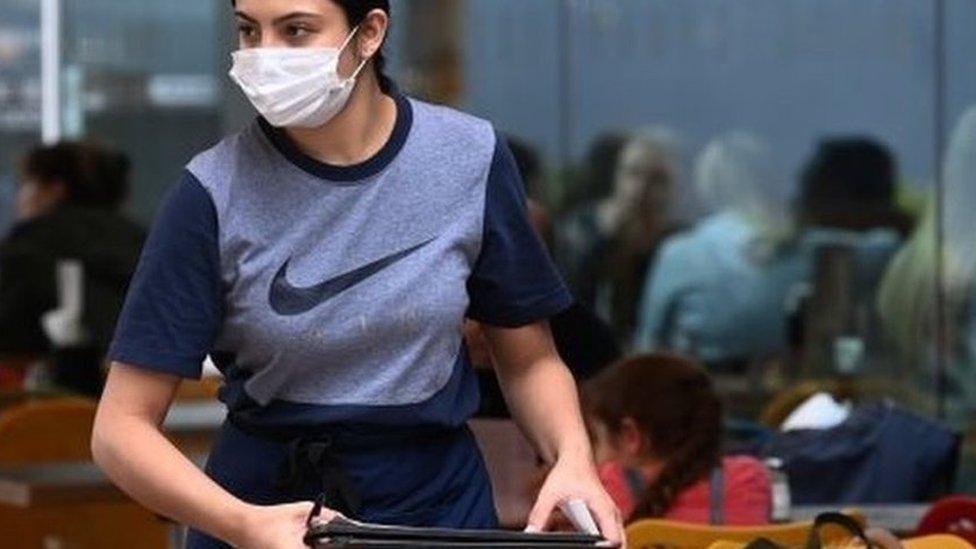
- Published28 September 2021
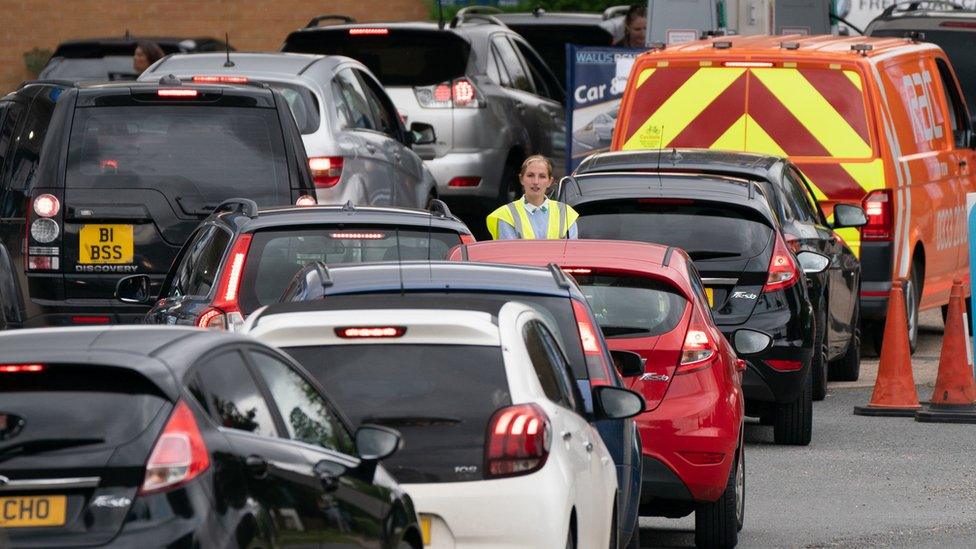
- Published28 September 2021
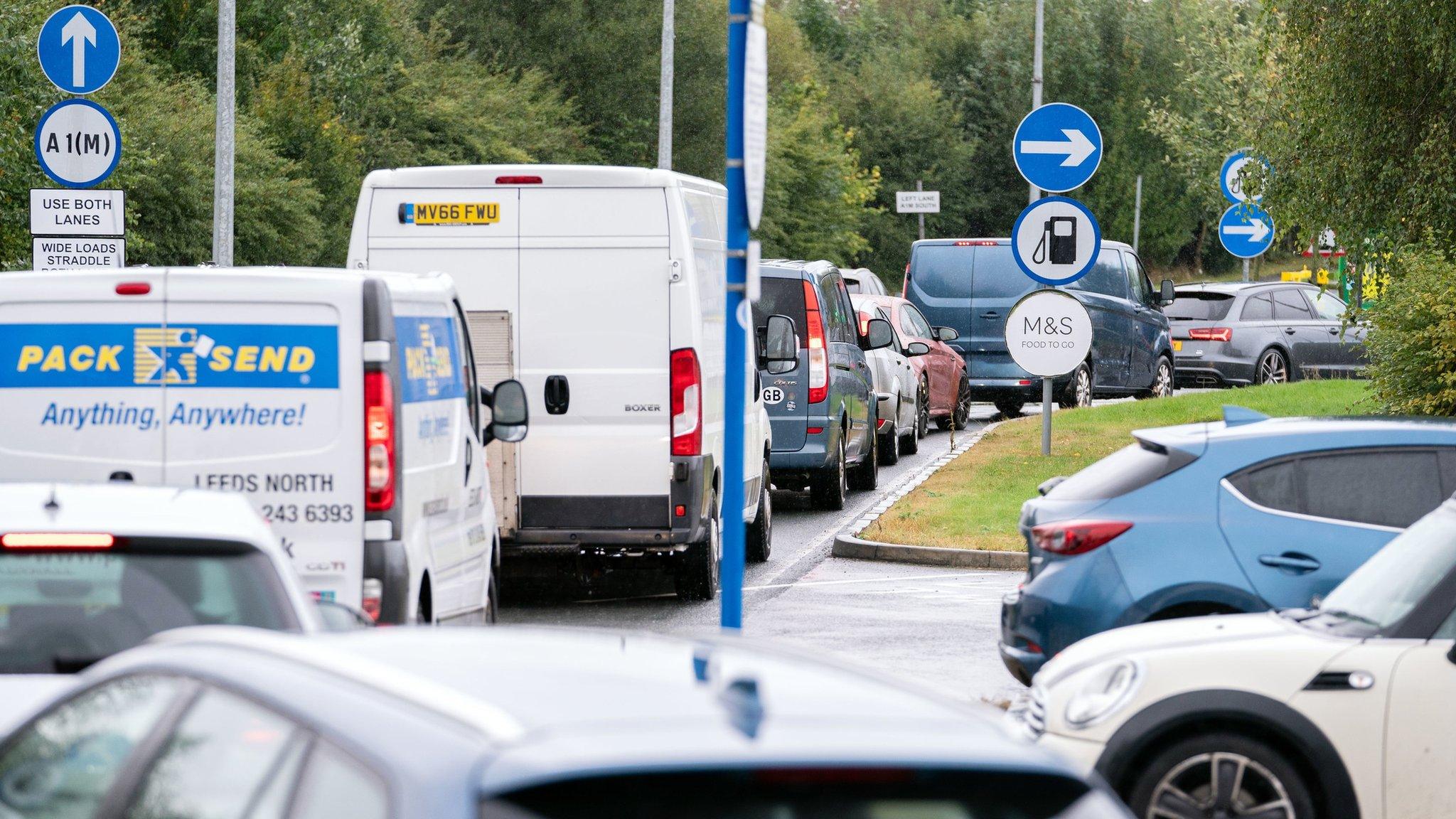
- Published27 September 2021
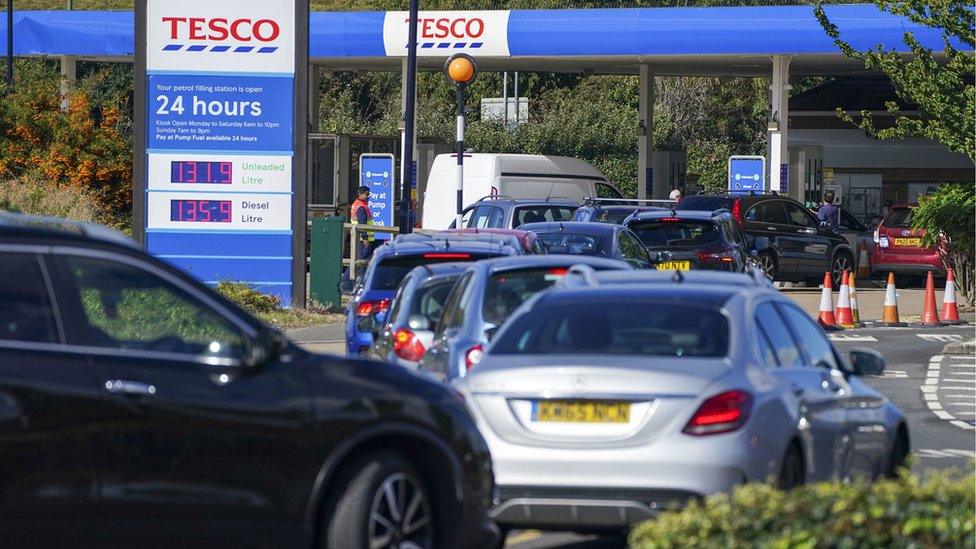
- Published27 September 2021
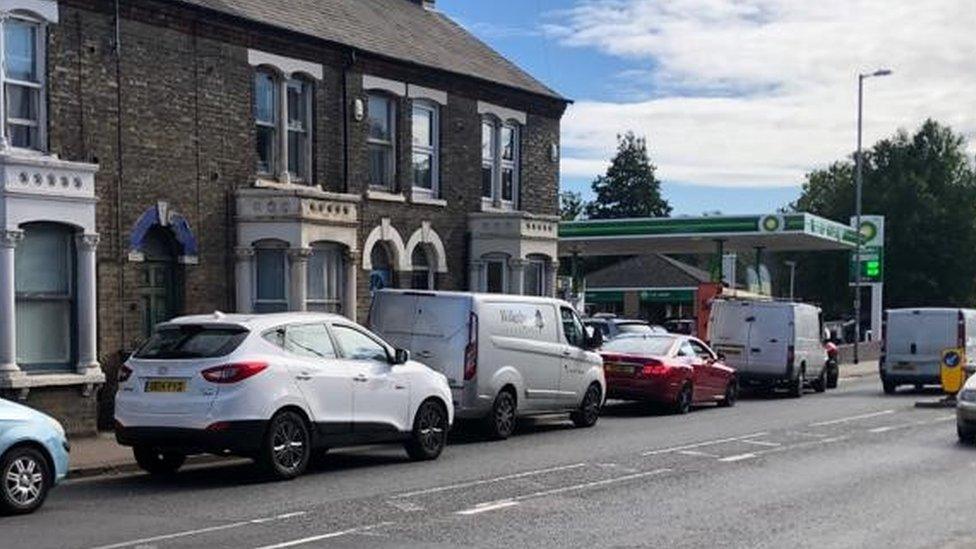
- Published26 September 2021
